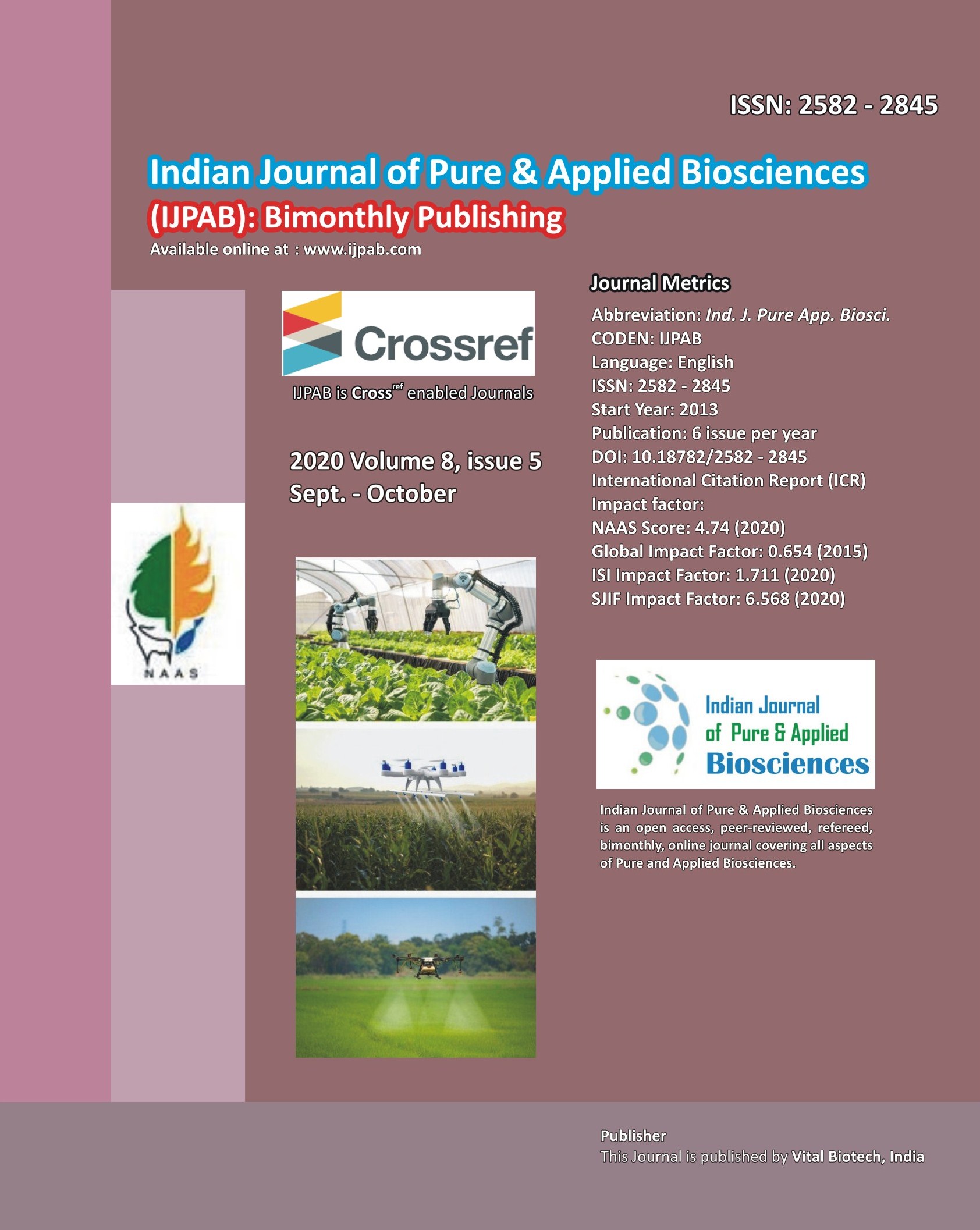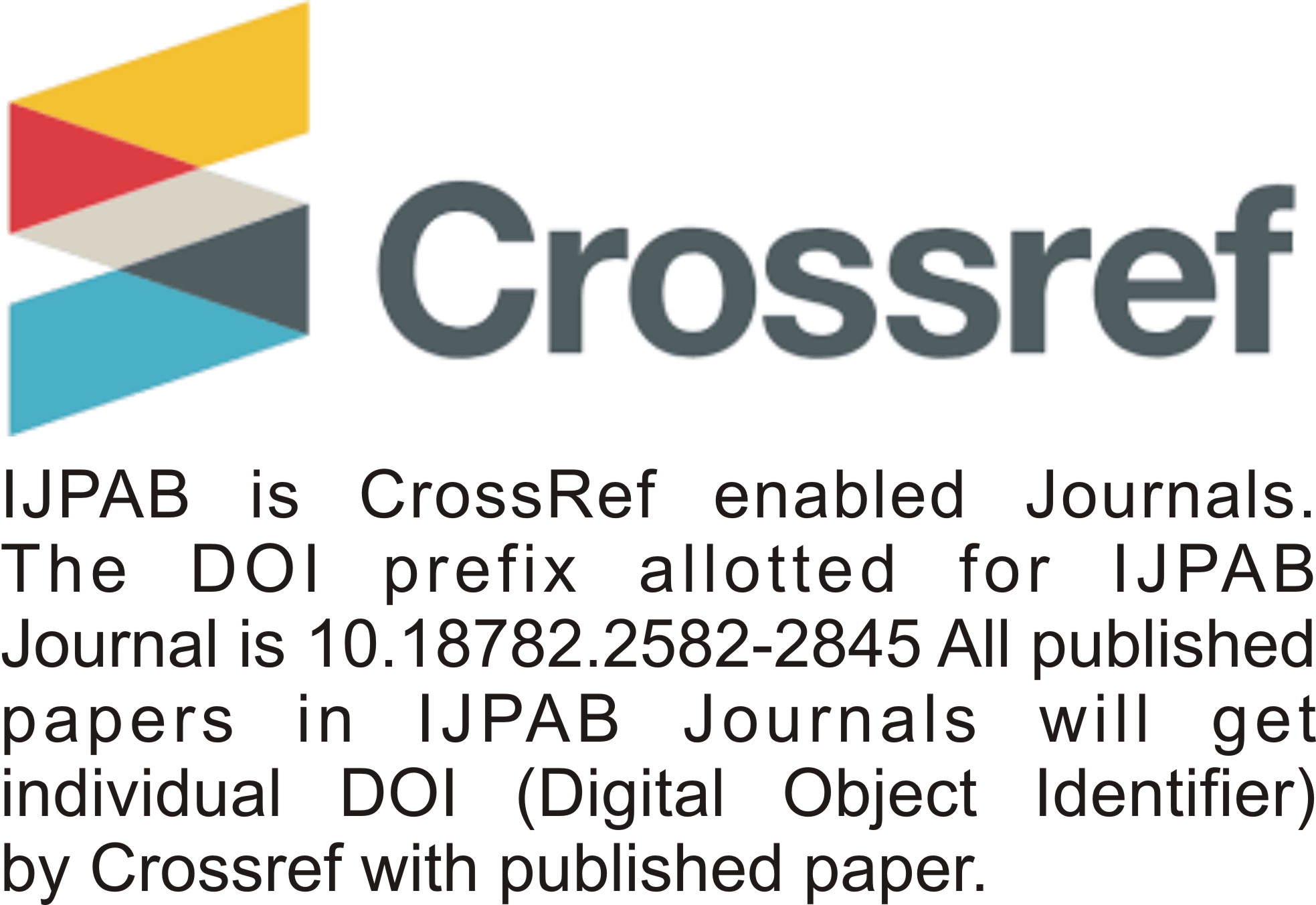
-
No. 772, Basant Vihar, Kota
Rajasthan-324009 India
-
Call Us On
+91 9784677044
-
Mail Us @
editor@ijpab.com
Indian Journal of Pure & Applied Biosciences (IJPAB)
Year : 2020, Volume : 8, Issue : 5
First page : (171) Last page : (176)
Article doi: : http://dx.doi.org/10.18782/2582-2845.6299
Effect of Heat Stress on Yield and Quality Parameters in Different Wheat Species
Renuka. S. Herkal* ![]() , Shweeta Kademani and D. I. Jirali
, Shweeta Kademani and D. I. Jirali
Department of Crop Physiology, University of Agricultural Sciences, Dharwad-580005, Karnataka, India
*Corresponding Author E-mail: herakalrenuka@gmail.com
Received: 10.08.2020 | Revised: 23.09.2020 | Accepted: 29.09.2020
ABSTRACT
A field experiment was conducted during rabi season of 2011-12 at Main Agricultural Research Station, University of Agricultural Sciences, Dharwad to evaluate the effect of heat stress on growth, physiology and productivity in different wheat species under normal irrigated conditions. The experiment consisted of 12 genotypes (UAS-320, NIAW-1415, NIAW-34, HI-1571, DWR-1006, UAS-415, UAS-428, UAS-439, DDK-1025, DDK-1029, MACS-2971 and HW-1098) belonging to cultivated species viz. Triticum aestivum, Triticum durum and Triticum dicoccum and were laid out in a factorial randomized block design with three replications. The different temperature regimes were maintained by manipulating the date of sowing. Significant differences were observed in Yield parameters like grain yield, harvest index, 1000 Grain weight, No. of spikes, Spike length and Spike weight and quality parameters like protein and β-carotene with different temperature regimes. Among the treatments, low temperature regime exhibited superiority over high temperature regime, while giving a better response to most of the yield contributing characters the grain yield per hectare was low in HI-1571 and NIAW-34, the reduction due to high temperature was very low in these genotypes thus indicating the high temperature tolerance. Among the genotypes, the maximum reduction in the yield was recorded in UAS-439 and UAS-428. The genotype UAS-439 and UAS-415 while maintaining the high yield under low and high temperature regime, its reduction due to high temperature was mainly attributed to the significant reduction in the 1000-grain weight, spike length, spike weight and number of spikes, thus indicating their use in breeding the wheat genotypes for tolerance to heat stress.
Keywords: Triticum aestivum, Yield, Temperature, Spike.
Full Text : PDF; Journal doi : http://dx.doi.org/10.18782
Cite this article: Herkal, R.S., Kademani, S., & Jirali, D. I. (2020). Effect of Heat Stress on Yield and Quality Parameters in Different Wheat Species, Ind. J. Pure App. Biosci. 8(5), 171-176. doi: http://dx.doi.org/10.18782/2582-2845.6299

